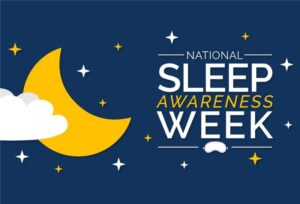How to Optimize Your Sleep Hygiene this Sleep Awareness Week

Sleep is essential for overall health, yet millions of people struggle with getting quality rest each night. Sleep Awareness Week, observed from March 9-15, serves as a reminder of the importance of good sleep hygiene and the impact sleep has on physical and mental well-being. For those experiencing persistent sleep difficulties, seeking help from specialists in neurology in New Jersey can be a crucial step in diagnosing and managing sleep disorders.
Why Sleep Hygiene Matters
Good sleep hygiene refers to healthy habits and practices that promote restful and restorative sleep. Poor sleep can contribute to a range of health issues, including fatigue, difficulty concentrating, weakened immunity, and increased risk of conditions like heart disease and diabetes. Establishing a consistent sleep routine and making small lifestyle changes can lead to significant improvements in sleep quality.
Tips for Better Sleep Hygiene
Improving your sleep hygiene can make a significant difference in your overall health and daily energy levels. By adopting simple habits and making adjustments to your routine, you can set yourself up for more restful and restorative sleep. Here are some tips for better sleep hygiene:
1. Maintain a consistent schedule: Go to bed and wake up at the same time every day, even on weekends. This helps regulate your body’s internal clock and improves sleep quality over time.
2. Create a relaxing bedtime routine: Engage in calming activities before bed, such as reading, taking a warm bath, or practicing relaxation techniques like deep breathing or meditation. Avoid screens at least an hour before sleep, as blue light from devices can interfere with melatonin production.
3. Optimize your sleep environment: Keep your bedroom cool, dark, and quiet. Investing in a comfortable mattress and pillows can also make a significant difference in your sleep quality.
4. Limit stimulants and heavy meals: Avoid caffeine, nicotine, and heavy meals close to bedtime. These can disrupt sleep by causing restlessness or discomfort. Opt for lighter snacks if you feel hungry before bed.
5. Get regular exercise: Physical activity during the day promotes better sleep, but avoid vigorous workouts too close to bedtime, as they can be stimulating.
Prioritizing good sleep hygiene can lead to better physical and mental well-being, but if sleep problems persist, professional evaluation may be necessary. Seeking medical guidance can help identify underlying issues and provide effective solutions for long-term sleep improvement.
Seeking Medical Help for Sleep Disorders
If you experience ongoing sleep disturbances, such as insomnia, restless legs syndrome, or sleep apnea, it may be time to consult a medical professional. Experts in neurology in New Jersey and other healthcare specialists can diagnose and treat sleep disorders, helping you find the right solutions to improve your rest.
At The Medical Group of New Jersey, we offer comprehensive care for sleep disorders. Whether you need an evaluation, treatment plan, or guidance on improving sleep hygiene, we’re here to help you achieve healthier, more restorative sleep.